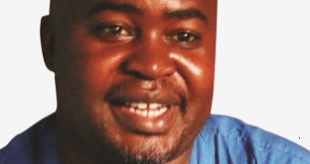
Kampala, Uganda | THE INDEPENDENT | Educationists and retired academicians have poked holes in the radical overhaul of teacher education in Uganda, as the government moves to implement the 2019 National Teacher Policy.
They say that although the new policy has a lot of good notions that might uplift the quality of teachers, including incentives and professionalization, much of the ideas on teacher education are imported and detached from reality, yet there are practical solutions that could have been offered.
Some of the contested teacher education reforms that the new policy seeks to implement include phasing out Grade III and V teaching qualifications as the minimum for teachers in primary and secondary schools respectively in favour of a graduate programme across the board.
Additionally, the reforms also push for teacher training at the graduate level from three to four years, introduce special career pathways for teachers, and the Continuous Professional Development system.
Prof. Mathew Odada, a retired teacher educator, says that a degree is not the ultimate solution to achieving quality education in Uganda. He argues that although a degree is much desired as a sign of excellence, it doesn’t necessarily translate into quality.
To him, many graduate teachers produced in current times cannot match Grade III or V teachers trained in the ‘good old days.
Prof Odada says that the solution should be obtained in finding out what went wrong with teacher education.
“If teachers with those despised low qualifications used to give better output, it means the problem is not on the level of qualification but somewhere else. The only problem is the people currently managing our education system. They are arrogant, they think they know it all. they make decisions driven by ego not reason and they don’t consult.”
A source who was on the committee that framed the policy notes that much of the ideas in the policy were good but the ministry did not make enough from teachers and other local stakeholders.
“Some of the continuous issues right now like having a degree for all teachers and raising the training year from three to four were influenced by development partners driving the narrative that the existing framework is not adequate to ensure that teachers are in a position to meet the present and future needs of the education system,” the source said.
As Prof Odada put it, many reports have been highlighting that to have quality teachers, the ministry had to address what happens in training institutions; before a student is admitted and what happens during training.
For instance, the Teachers Initiative in Sub-Saharan Africa-TISSA report pointed out that Primary Teachers’ Colleges do not appear to provide teacher trainees with the required skills and pedagogical training thus having virtually no impact on pupils’ or teachers’ final performance. The report further tagged the limitations sighted in PTCs on poor facilitation and staffing.
Dr Tony Mukasa Lusambu, an education consultant and a former Commissioner in Charge of Primary Education notes the challenge of staffing is critical in PTCs and NTCs as many of them have been filled with people who never trained to be teacher educators with most of them picked from secondary schools.
Dr Lusambu who rose from being a Grade II teacher to holding a PhD in Primary Education, says the level of qualification is not the issue but the skills and knowledge of a student-teacher. To him, receiving training from the right person should be among the first steps to the solution.
Besides the qualification of tutors and teacher educators, Dr Lusambu says that the other problem that needed to be addressed was on who should join a teacher training college or institute.
“Teaching had to attract top performers but this changed. Now, those who have failed to be admitted on other programmes are the ones who enroll for education. Someone who could not get above 70 percent in geography during his O’Level ends up as a geography teacher. What are you expecting out of that person? You can not give what you don’t have,” Lusambu added.
Prof Fred Masagazi Masaazi, the Principal of the College of Education and External Studies (CEES) at Makerere University, says before implementation of the new reforms in teacher education, the ministry needed to carry out extensive consultation and research in addition to reviewing the past reports that have been developed in line with teacher education in the country.
Prof Masaazi says strengthening the in-service training system to offer teachers real opportunities for continuous professional development throughout their careers and strengthening inspection could be a better alternative. He adds that, just as the teacher policy points out in part, there must be improvements in teachers’ remuneration and conditions to arouse the motivation of teachers and attract top performers to the profession.
Filbert Baguma, the Uganda National Teachers’ Union General Secretary, who says he supports the new reforms for the betterment of the teaching profession, acknowledges that the poor quality of teachers can be partly blamed on motivation.
Baguma says that although the government is preferring a degree as a minimum qualification, many teachers had no reason to upgrade to high qualifications since the government failed to commensurate their attained qualifications with the salary they receive.
Baguma is however optimistic that whether the new changes take root, everything will slowly adjust for the better. Many other educationists, some working in the education ministry, had reservations about the reform but they refused to share their thoughts on the matter saying that “it could land them in trouble with the powers-that-be might within the ministry”.
*****
URN
 The Independent Uganda: You get the Truth we Pay the Price
The Independent Uganda: You get the Truth we Pay the Price



